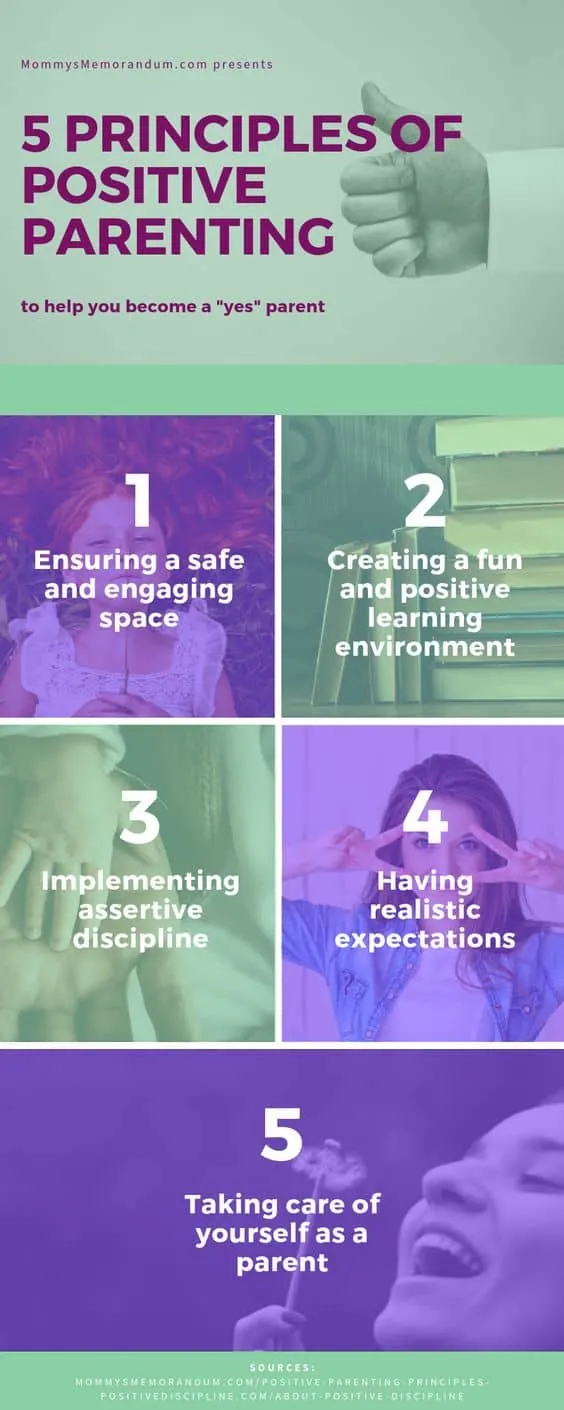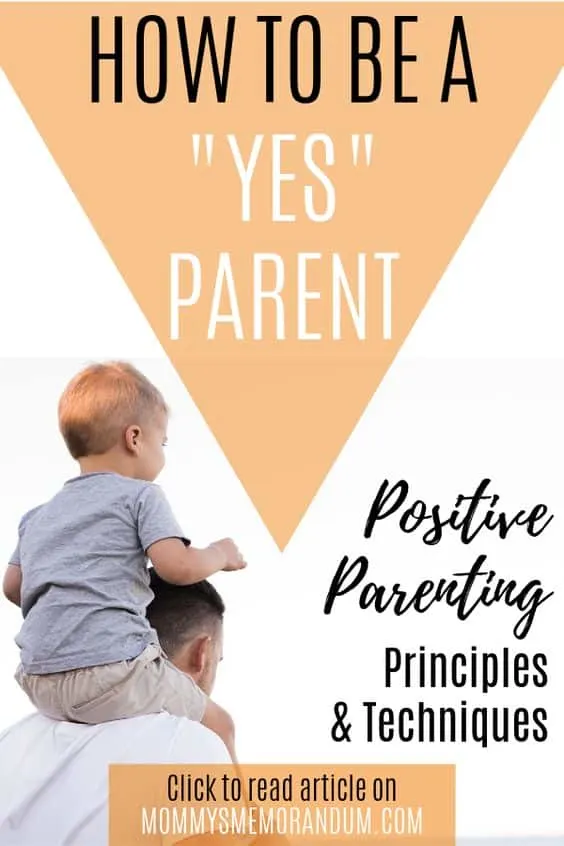Have you been having some bad parenting days lately? Do you find that disciplining your child always seems to result in loud yelling, uncontrollable tears, and hurt feelings?
If so, then maybe it’s time to change your parenting tactics.
If you want your kids to grow up kind, thoughtful, and well-behaved, you might want to try a different approach.

Disciplining isn’t just about overseeing your child’s every move and mandating punishments as you see fit.
It’s all about having a strong connection that will help both parties understand each other and create a harmonious relationship and space for the whole family.
Unfortunately, it has gotten significantly more difficult for parents to effectively forge meaningful connections with their children due to the endless distractions.
Even young children are not exempt from the growing epidemic of technology addiction in today’s society, which is why it has become harder and harder to compete for a child’s attention now that they have smartphones, tablets, or gaming consoles to keep them busy.
Now, clearly a child’s Internet activities should be regulated and closely monitored to ensure their safety, but it’s ultimately up to the parent on how they will handle those situations.
The important thing to remember is that, as a parent, you have a responsibility to your kids to maintain that parent-child connection, because that connection will help foster the kind of communication you need to have with each other to have a more respectful relationship.

What is positive parenting?
The idea of positive parenting started in the 1920s thanks to an Austrian psychologist named Alfred Adler. He believed that if children were understood and respected by parents and other authority figures, they would be less likely to misbehave.
Decades later, Dr. Jane Nelsen, an American counselor, used Adler’s research to create a positive parenting approach.
She self-published her first book, “Positive Discipline,” in 1981.
Dr. Nelsen’s approach states that whenever children make mistakes, it is important to react and discipline your child with the following criteria in mind:
Responds firmly but kindly to maintain respect between parent and child.
It helps children feel a sense of belonging and significance to make them feel more connected with their parents.
It is an effective long-term fix for discipline, unlike punishments that only work short-term and can produce negative long-term effects.
Teaches valuable social and life skills such as respect and concern for others.
Encourages children to discover how capable they are and use their power constructively.
What are the principles of positive parenting?
Positive parenting rests on five principles that go hand in hand with building a strong, positive bond between you and your children.
Following these principles can also help you train to be the effective leader and guardian your little ones, need you to be.
Principles of positive parenting:
Ensuring a safe and engaging space.
Creating a fun and positive learning environment.
Implementing assertive discipline.
Having realistic expectations.
Taking care of yourself as a parent.
Tips for implementing positive parenting:

No matter how adorable your children can be, there will always come a time when they will get on your nerves for misbehaving or breaking the rules—and you will need to discipline them.
But no matter how upset you are, you don’t have to resort to spanking, yelling, or other hurtful ways.
Finding positive ways to discipline your kids can give you a better outcome, but it’s easier said than done.
If you’re not sure what to do, it’s best to create a list of possible reactions that you can reference whenever you find yourself in these situations.
A publication from Harvard suggests that doing this will most likely help you succeed in dealing with your anger and avoiding yelling or hurtful punishments.
Here are some techniques to help you avoid negative reactions and implement positive parenting:
Provide your kids with options
Present choices to your children instead of answering them with a point-blank “no.”
Such answers will most likely result in a power struggle situation, which rarely yields positive results.
By giving options, you avoid putting your child in a situation where their only choice is to respond with utter defiance.
If you give your children the ability to decide on something, they will feel more respected and, ultimately, more empowered.
Keep in mind that the options you present must still meet your set of rules.
Also, once your child makes a decision, never go back on your word about allowing them to follow through with that decision, as doing so may make you appear unreliable.
Play detective
Discover the underlying reason why your child is acting out.
Communication is key, but if you find it hard to get your child to open up to you, there are other ways to find out.
Watch them from afar and observe, get to know what their usual environment is like, or check if any other factors are involved.
Depending on your child’s age, many factors could contribute to bad behavior or a change in mood.
With younger children, these factors are usually hunger, boredom, jealousy, discontentment, or a feeling of neglect.
If your child is a bit older, it could be due to outside factors such as difficulty in school, bullying, or even the influence of other adults.
If you suspect that it could be the latter, try talking to the people who usually have frequent contact with your child (teachers, school personnel, and other authority figures) to get to the bottom of these changes in mood or behavior.
Always ensure that the people involved in your child’s care and education are credible, trustworthy, and reliable.
If in doubt, use a reputable people search site, says My Life, to vet the people (apart from yourself) who often spend time with your child.
Whatever the issues may be, figuring out the cause of the problem will help you figure out how to address it and make it stop.
Be a “yes” parent

Obviously, you can’t say “yes” all the time—but it’s not helpful to frequently say “no” either.
Instead of perpetually having to be the bad guy, finding a healthy compromise with your kids is best.
For example, if your child asks permission to attend a slumber party with friends, say “yes,” but with certain stipulations, the child will have to follow, such as the continued reinforcement of bedtime hours.
This allows them to do what they want but with reasonable boundaries.
Of course, you may sometimes find yourself in certain situations where you must say “no” to your child’s requests.
In such cases, provide a legitimate reason you can’t allow them to have or do what they want.
Explain your side so your child can understand where you’re coming from.
Teach them different emotions
Most of the time, tantrums are caused whenever children cannot comprehend what they’re feeling.
For them to communicate with you directly, they must know what kind of emotions they are feeling.
Teach younger kids how to express their feelings through a chart.
You can also try taking photos of different facial expressions that they make and use them as material for learning.
For older kids, expand their emotional vocabulary by referring to a “feeling” list with several words or sentences that accurately describe different feelings.
Be Consistent
Stay consistent when disciplining your kids. If you’re constantly changing your mind about how to discipline them and what offenses you will discipline them for, they might have difficulty understanding what’s acceptable and what’s not.
Try to keep everything routine, like nap time, play, and other activities.
If you plan to implement a change, inform your children in advance to allow them to adjust.
In any area of parenting, it’s always important to be consistent because not doing so can leave your kids confused and insecure.
What is the right age to implement positive parenting?
It’s never too early to start enforcing limits and setting good behavior standards.
According to experts, even babies can benefit from the early implementation of positive parenting techniques.
After all, there are things that parents can attempt to discipline their babies for, such as hair pulling, playful slapping, or eating dirty things.
Some parents often neglect to set boundaries or provide discipline when their children are transitioning to toddlerhood.
They find excuses for their child’s behavior—excuses like, “he’s just a baby!” or “she doesn’t understand what it means!”
But too often, parents who neglect to discipline their children during these early years may find themselves having a much harder time correcting certain bad habits or behavioral patterns when the child is already much older.
Benefits of positive parenting to a child’s development:

Every action always has a reaction; the same goes for positive parenting.
It doesn’t only help you instill positivity in your parenting method but can also affect your child’s development.
Here are some notable benefits:
- Optimum brain development
- Stronger parent-child relationship
- Better communication and a deeper connection
- Reduced power struggle situations
- Better chances of cultivating a responsible attitude and a pleasing personality
- Higher chances of growing up to be a successful and positive adult
Practicing positive parenting doesn’t only make the relationship and foundation of the family stronger, but it can also create a safe space for everyone.
Remember that discipline doesn’t have to equate to harmful consequences—it should always be constructive, mindful, and carried out with love and understanding.
